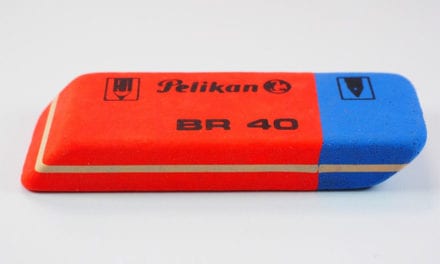The federal Fair Debt Collection Practices Act (FDCPA) created debt validation as a part of a suite of regulations intended to curb aggressive and abusive tactics by bill collectors. Debt validation requires third party bill collectors (not original creditors) to respond to consumers’ written requests for information about debts in collections. Your credit card debt, auto loans, medical bills, student loans, mortgage and other household debt in collections are covered under the FDCPA. However, your business debt is not. Debt validation can also be a tool to improve your credit score.
How Debt Validation Works
Debt validation answers three (3) important questions. First, is the debt in collections actually your debt. Second, how was the amount of that debt calculated. And finally, is the company attempting to collect that debt, authorized to collect it.
If the third party collector must validate your debt in writing within thirty (30) days of receiving a written request. If it can’t, it must cease all collection efforts. The Federal Trade Commission (FTC) is the federal agency that enforces the FDCPA. FTC policy deems that reporting unpaid debt to the credit bureaus as a collection attempt. Accordingly, when a collection agency fails to validate a debt, it must remove the delinquency from your credit report.
“Wait, wait, wait,” the Monkey hears, “that sounds great, I think? Just slow down Credit Monkey. Stop sounding like a lawyer and explain what you just said.”
“Sorry. OK, I’ll try.” Let’s take a closer look at debt validation.

Is That Debt Really Mine?
Collection agencies do an excellent job of identifying what company originally owned your delinquent account. If you look, every demand for payment letter you receive clearly states who was the original creditor. If you telephone a bill collector, he will gladly tell you the original creditor. For the bill collector, it is the easiest of the three questions to answer. (BTW, don’t call a bill collector unless you intend to pay the bill. If you call, be prepared for a bombardment of collection telephone calls and letters.) You don’t need the help of a bill collector to figure out to whom you might owe money. Trust the Monkey, you can figure that out to all on your own with debt validation.
What a third party bill collector can’t tell you is if you really owed money to the original creditor. Collection agencies assume that every debt assigned them is owed by the person alleged in the assignment.
That assumption can be wrong. Not every debt assigned is owed by the named consumer. Mistakes happen. Fraud happens. Things slip through the cracks. One of the reasons Congress created debt validation is because things happen. A great debt validation letter helps catch errors. A great debt validation letter requests a copy of the agreement (contract) that makes you liable for the alleged debt.
If you believe that the debt being collected is not your debt, document it if you can. Then send the Monkey’s Debt Validation Letter at the end of this post to the collector. A debt validation letter is a great first step in successful credit report dispute.
The Terms and Conditions
Just because your debt validation letter asks, doesn’t mean the collection agency will provide a copy of the original finance agreement. Failing to provide the original credit agreement by the third party collector isn’t an attempt to hide it from you. No. The real reason that collection agencies don’t provide you the contract is because THEY DON’T HAVE IT or CAN’T GET IT IN A TIMELY MANNER.
Collection agencies receive information from original creditors in spreadsheets and/or in delimited data files created for importation into the collector’s software. These files contain your personal and account information. It’s everything a company needs to know to collect a debt. However, under normal circumstances, the information received doesn’t contain the original contract or any of the original creditor’s account statements. It’s strictly data.
Knowing this, you think. “I got that slimy collection agency right where I want them”, right? If the bill collector doesn’t possess the agreement, then he can’t prove you owe the debt. The Monkey is sorry to say, it doesn’t work that way, particularly with credit card and services debt.
During the late 90’s, credit card companies changed their user agreements. You no longer need to sign a credit card user terms and conditions to be liable for the debt. Now, the credit card user agreements states that by using the card to make a purchase or take a cash advance, you agree to the terms of the user agreement. That means the first time you swipe the card, you enter into a contract with the credit card provider. No signature required.
The same is true of services. Legally, if you accept a service such as health care, you are liable for the cost. Absent fraud or other malfeasance, you are stuck. The debt is yours. No signature required. The plaster cast setting your broken arm is equivalent to a signature.
Then why ask for a copy of the agreement? Simple. By asking, you might receive information that you can later use in a credit report dispute. For example, the Credit Monkey never applies for credit over the internet. The Monkey is uncomfortable exposing his personal information to the ether. That said, if a collection agency responds to the Monkey’s agreement request by stating he applied for the disputed credit card debt over the internet, the Monkey knows to dispute the account based on incorrect information.

I Owe How Much?
The FDCPA requires that third party collectors provide an accounting of how the balance of the account was calculated. Until a few years ago, a consumer could request the entire credit and debit history of an account for the express purpose of searching for discrepancies to invalidate a debt.
More recently, the Courts held that demanding a copy of every transaction during the entire life of an account is unreasonable. Now collections companies need only explain the amount of the debt at the time of purchase and explain their fees and costs added to the purchased balance. Now, you must go to court if you want to dispute the original amount.
In most cases, an experienced debt lawyer can make third party collectors go away. The issue is, does the cost of legal and attorney’s fees justify the amount saved? When balancing the cost versus the benefits of court, realize that in the legal system, that there are no sure things. Not even the best lawyer can guarantee the outcome. So, use debt validation as your first option not the courts.
Collection agency accounting information is invaluable. Added fees are negotiation fodder. Those fees are little more than fatteners to inflate the alleged amount owed and provide the collector with more room to negotiate higher profits. When the Credit Monkey negotiates debt for a client, he immediately dismisses all added fees and only haggles over what percentage of the original debt is paid. You should do the same.
Negotiate only the original debt. Forget the extra charges. Most bill collectors will forget the extra fees if you say NO! Unless you are trying to get mortgage this week, you can wait out a bill collector. If he won’t forgive the added charges this week, he will next week.
Assignment, But Not Homework
According to Investopedia, “Debt assignment is a transfer of debt, and all the associated rights and obligations, from a creditor to a third party, often a debt collector.” In plain English that means, before a third party collection agency may legally attempt to collect a bill, the debt must be assigned to that collector.
Bill collectors get debt assignments in two ways. First and most common, collection agencies buy delinquent debt from a bank or other creditors for pennies on the dollar. The purchasing collector becomes the new owner of the debt with all the rights to collect the entire amount owed. That is, if he can get it. When you negotiate, remember that collection agencies purchase bad debt cheap. It’s so cheap that they don’t need to collect every debt or even the full amount of a debt to make bags of money. Let someone else give the bill collectors big profits. Don’t you do it.
The second way third party bill collectors get your debt is by contracting as the original creditor’s collection agent. In this scenario, the ownership of a debt doesn’t changes hands. The original creditor still owns the debt. The collection agency simply becomes an extension of the creditor tasked with nothing other than getting as much money as they can from you. The collectors play hard ball attempting to get the most they can. In essence, the collector is a commissioned salesperson who gets paid on the amount they collect.The more they collect, the more they get paid.
Hospitals and clinics regularly use bill collectors in this fashion. In fact, historically medical providers rarely sell their bad debt. Rather than sully their good names collecting debts, healthcare providers simply contract someone nasty to collect it for them.
A written assignment is an imperative for the debt buyer or contract collector. Without a written assignment a bill collector has no legal proof that he is authorized to collect the debt. Paying a third party bill collector without seeing the assignment is equivalent to accepting the word of a slimy used car salesman who will say anything to get your money.

The Bill Collector’s Weakest Link
Please read this section carefully.
Regardless of how you ask, third party bill collectors cannot and will not provide you with a valid debt assignment. Please permit the Credit Monkey to repeat himself. Third party bill collectors cannot and will not provide you with a valid debt assignment.
Why is a bit technical. Let’s see if the Monkey can explain it.
A bad debt buyer purchases groups of accounts called “pools” from a bank or bad debt wholesaler. A bad debt wholesaler buys tens of thousands of delinquent accounts at a time and breaks them into smaller, more affordable pools and sells them to small collection agencies. A pool may be several hundred accounts or several thousand accounts.
The bad debt buyer receives two (2) things when it purchases a pool. It receives a receipt for the pool purchased with a description and/or name of the pool. The name of the pool does not contain your name, your account number or your social security number. It’s simply a sheet or two (2) of paper with signatures verifying the transfer of a business asset.
The second thing a bad debt buyer gets for his purchase is a computer file containing information about your alleged delinquent account. Your account details are buried in the file along with thousands of other accounts. The pool data file may never be printed. It is usually electronic. The electronic file is sent directly to a collection agency’s IT department for import in the firm’s contact and collections tracking software or to a spreadsheet for manipulation.
Regardless of the format, there is no way for an outsider to know where and how the bill collector acquired your account information. Unless, of course, you are willing to accept the word of the collection agency. The Credit Monkey would suggest otherwise.
By the time a demand for payment letter from the bill collector reaches you or a collector telephones you, only the collection agency’s IT department can tell the source pool of your information. The file itself my contain a source field, but there is no verifiable paper trail that will prove what pool, if any, your account came from.
The good news is that a collection agency can almost never prove assignment with a writing. The bad news is that you may need to prove that to a credit bureau if you want the derogatory removed from your credit file.
The Credit Monkey’s Best Debt Validation Letter
Now that you understand the basics of debt validation, let’s look at one of the Credit Monkey’s best letters.
July 19, 2019
Stressed Credit Applicant
Sleepless Night Street
Confusion, State XXXX1
Slimy Collections
Heartless Blvd., Suite 666
Devil’s Fork, State XXXX2
Re: Account # 6044100616900015 Debt Validation
To Whom It May Concern:
In accordance with the Fair Debt Collections Practices Act (FDCPA), I have the right to request validation of my alleged debt with Slimy Collections. Therefore, I ask that you provide documentation regarding my alleged debt with your firm and verify the same.
I am sure you are aware that reporting or the attempted collection of a debt based on inaccurate information will result in defamation of my character and may also mar my credit report. Such an action on your part could also spur possible legal action based on the FDCPA or credit slander.
Please attach copies of the following with your reply:
1.) The agreement which authorizes your firm to collect the alleged debt;
2.) The signed agreement conforming me to pay the original creditor; and,
3.) The documents regarding the payments made on this account validating the amount.
In absence of such documents, I request that this information be deleted from the file you maintain under my Social Security Number and that your monthly report to the credit bureaus reflect that deletion.
Thank you for your prompt attention.
Warm Regards,
Stressed Credit Applicant

Using the Monkey’s Debt Validation Letter
Making practical use of this debt validation letter is easy. Just follow the steps below:
- Copy the Credit Monkey’s Debt Validation Letter to your word processor.
- Change the date, address, account number(s) and the name of the collection agency in the letter. Note: Before sending the letter, be sure to change the name of the collection agency inside the body from Slimy Collections to the actual name of the collection agency. Calling the company Slimy Collections may not go over well, especially if you need to negotiate with them in the future.
- Sign the letter.
- Make a copy of the signed letter and file it for future reference.
- Mail the original debt validation letter to the collection agency. Before dropping it into the mail, photocopy the addressed envelope with its stamp affixed and file it with the copy of your debt validation letter.
- Thirty-five(35) days after mailing, send a dispute letter to each credit bureau disputing the debt based on the collector’s failure to respond within thirty (30) days or its failure to provide an assignment. Use one of the Monkey’s dispute letters as a template. Click here for sample dispute letters. Include copies of your signed debt validation letter, envelope and any response you received from the collector with your dispute.
- The credit bureaus must respond within forty-five (45) days of the receipt of your dispute letter. They are excellent at keeping within the mandated timelines.
What’s Next?
You will receive a disposition letter from each of the credit bureaus informing you of the outcome of your dispute. If the disputed item is removed from your credit report, congratulations! If not, you should appeal the decision. Rather than read a book disguised as a blog post, let’s leave the dispute appeal for another post.
Debt validation is a powerful tool in your credit repair arsenal. Use it the first time you are contacted by a collection agency. Good luck!
The Credit Monkey loves feedback. If you found this post helpful, please leave a comment, share the post or send the Monkey an email at [email protected].






Recent Comments